Malaysia's charcoal workers who risk life and health to do the work shunned by most
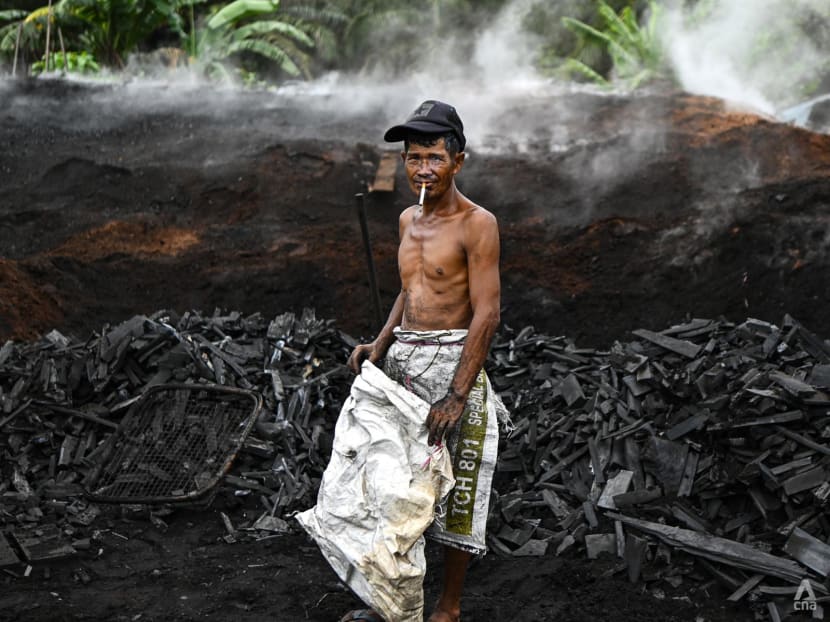
Mr Sahitom Ahmad, 53, who works to produce charcoal, putting on what he calls his "daily uniform" – a makeshift covering made out of a plastic sack to protect him from the heat. (Photo: CNA/Zamzahuri Abas)

This audio is generated by an AI tool.
Mr Mustapa Mustaman has spent more than two decades at a charcoal factory near Malaysia's quiet town of Kota Tinggi in Johor, Malaysia.
The toll of the hard labour was evident on the 60-year-old's body that was covered in perspiration and surrounded by fumes.
He spends eight hours a day turning wood into charcoal.
"This work is not easy," the Indonesian said. "The labour is hard and (the environment is) hot. We work with heat, dust and smoke every day."
Mr Mustapa is among the hundreds of thousands of foreign labourers who work in Malaysia's "3D" sector, referring to jobs that are dirty, dangerous and difficult.
Many Malaysians are unwilling to take up such jobs due to the intense physical demands and low pay.
This weekend, In Pixels looks at the gruelling conditions these workers face as they toil at a charcoal factory in Malaysia, and finds out what keeps them going.
BAREFOOT, BARE-BODIED IN INTENSE HEAT
For seven days a week, Mr Mustapa starts the work day before sunrise, at around 6am.
He begins by stacking pieces of wood into a burning pit that is 3m deep and almost the size of a badminton court.
The wood is then covered in sawdust, which acts as the fuel to help burn the wood, and the timber is burned for two to three months before charcoal is produced.
Mr Mustapa and his co-workers manage about 10 burning pits at the factory and they produce around two tons of charcoal daily.
The workers walk around the scorched grounds near the burning pits either barefoot or with just a flimsy pair of rubber slippers.
"There was a time when my foot slipped into the burning pit and my slipper got stuck inside," Mr Mustapa recounted. "Luckily, my foot didn't burn."
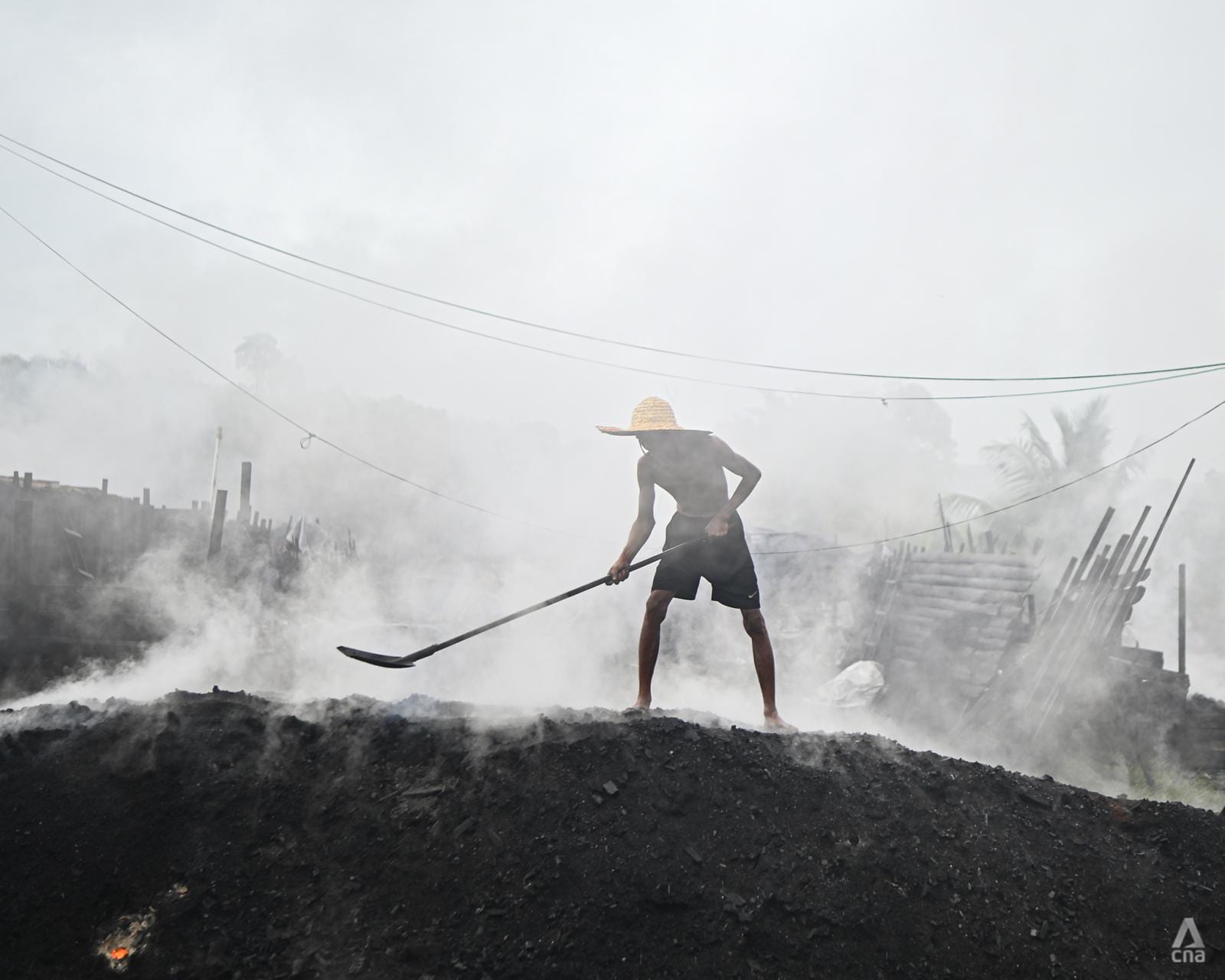
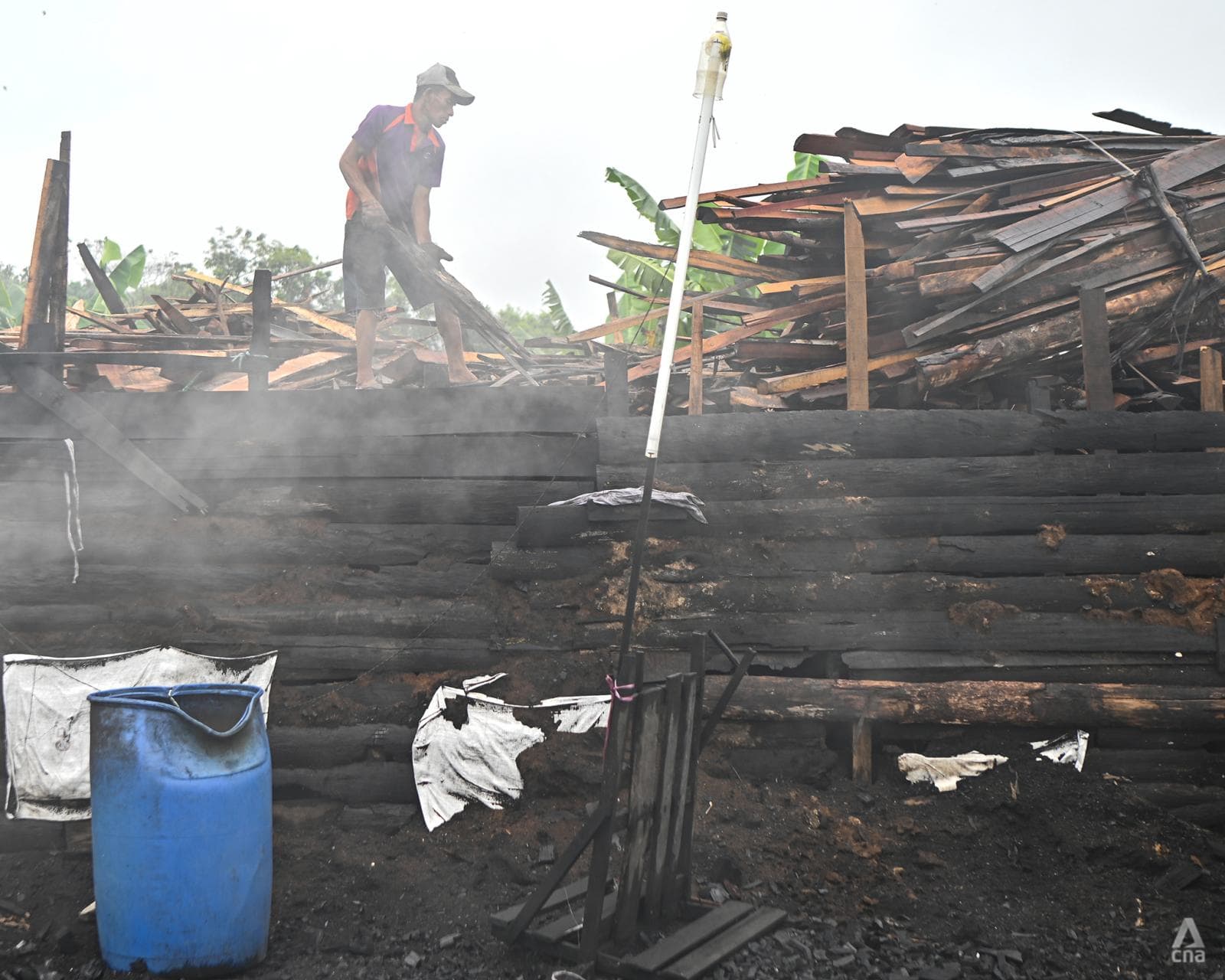
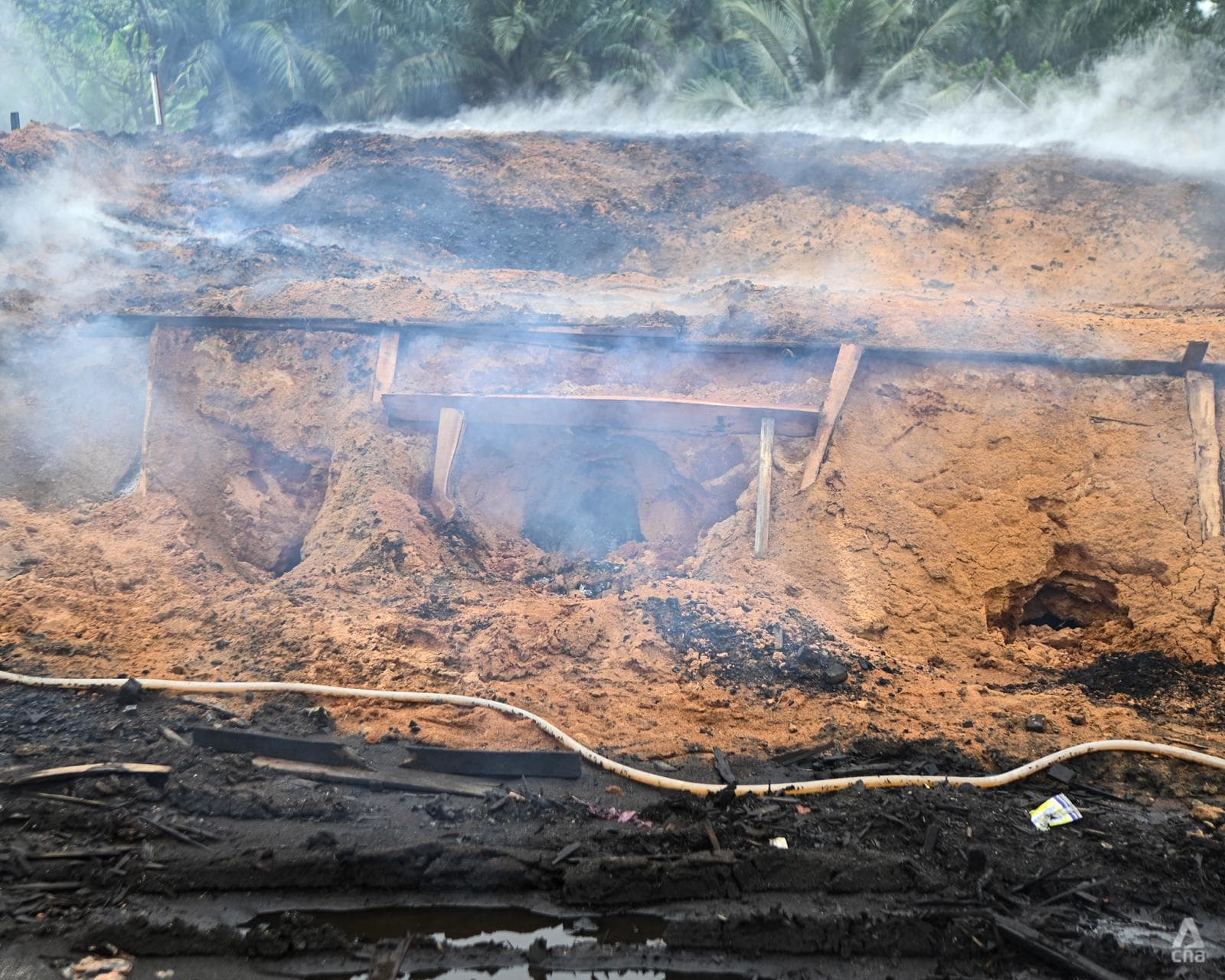
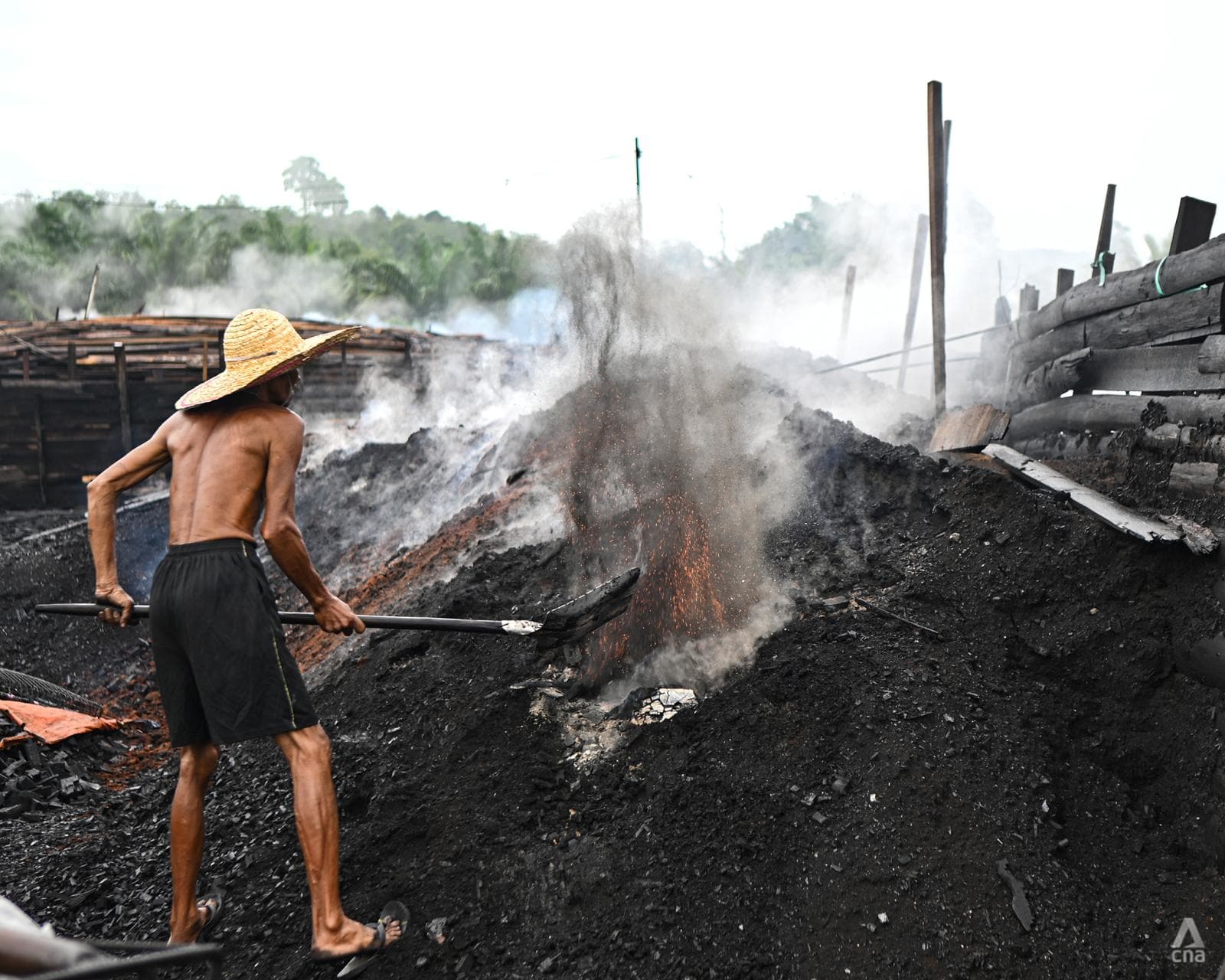
Squinting from the billowing thick smoke, Mr Nasaruddin Ahmad Rahmad tried to wipe the perspiration off his face as he raked out the finished charcoal from the fire pit, leaving it to cool.
The 64–year-old Indonesian has been working at this factory for nearly two decades.
For him, enduring the tough conditions has become second nature.
It is the emotional burden of being separated from his family in Lombok, Indonesia that makes it hard to bear.
"I miss my wife, children and grandchildren. When they are sick back home, I feel helpless," he said.
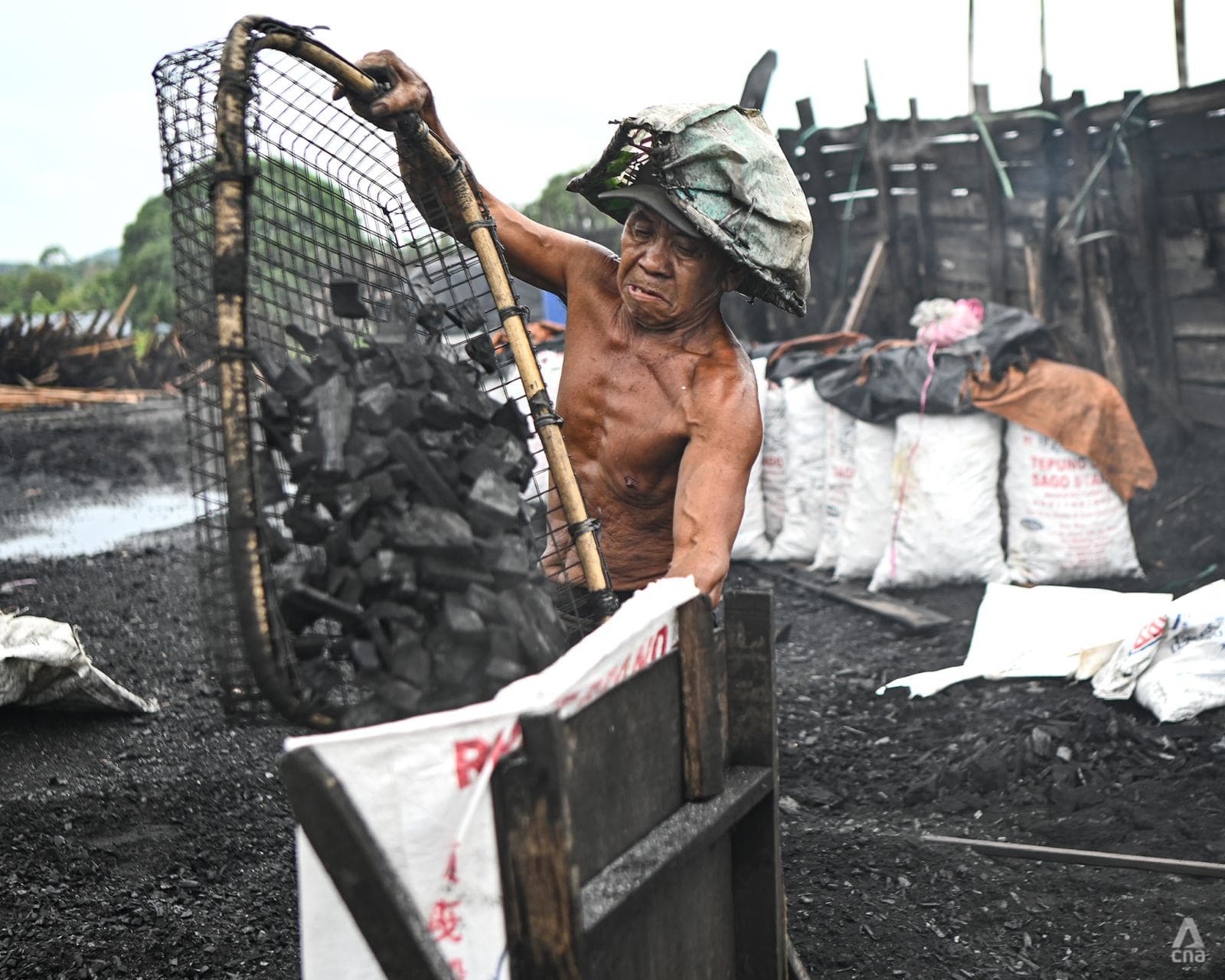
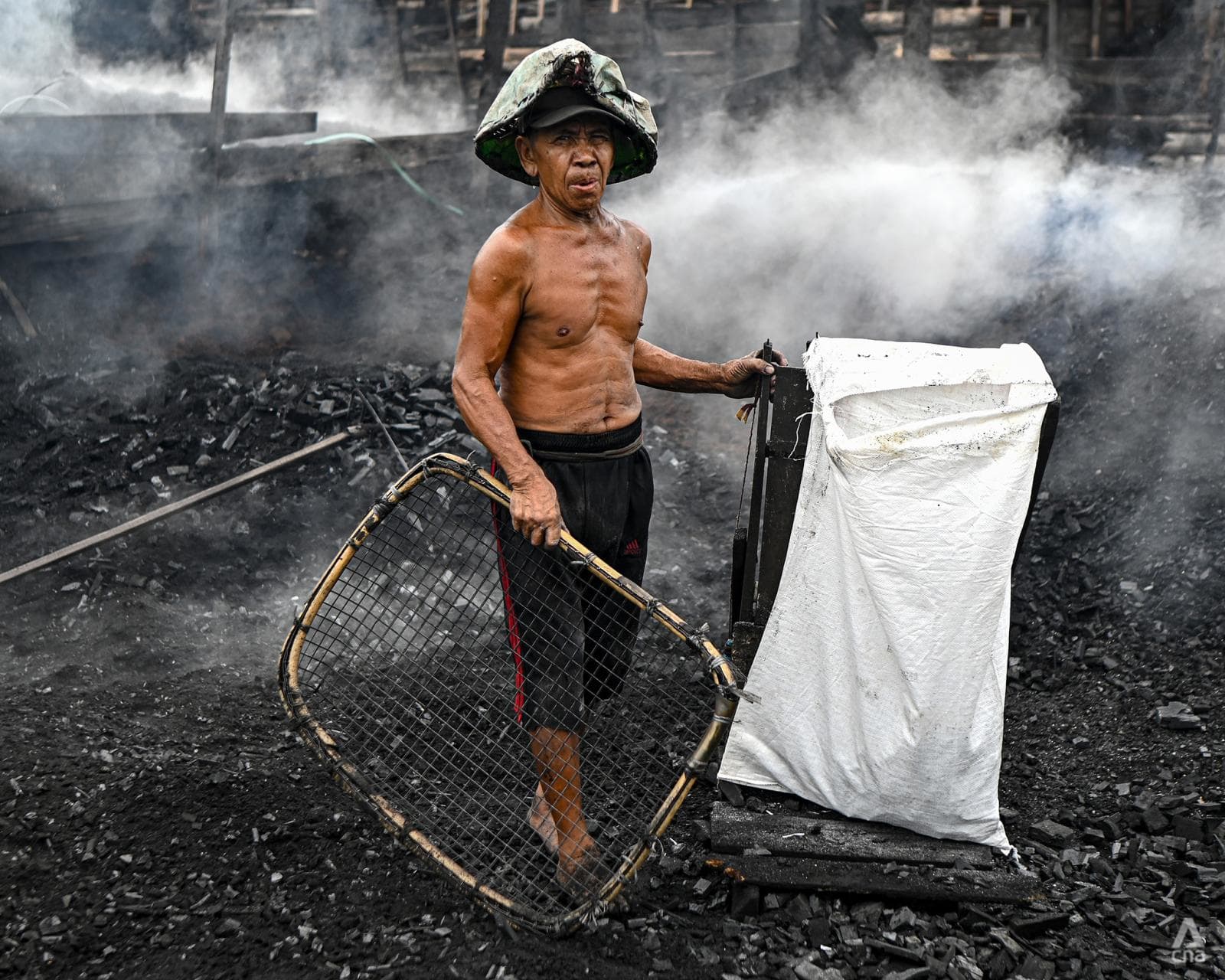
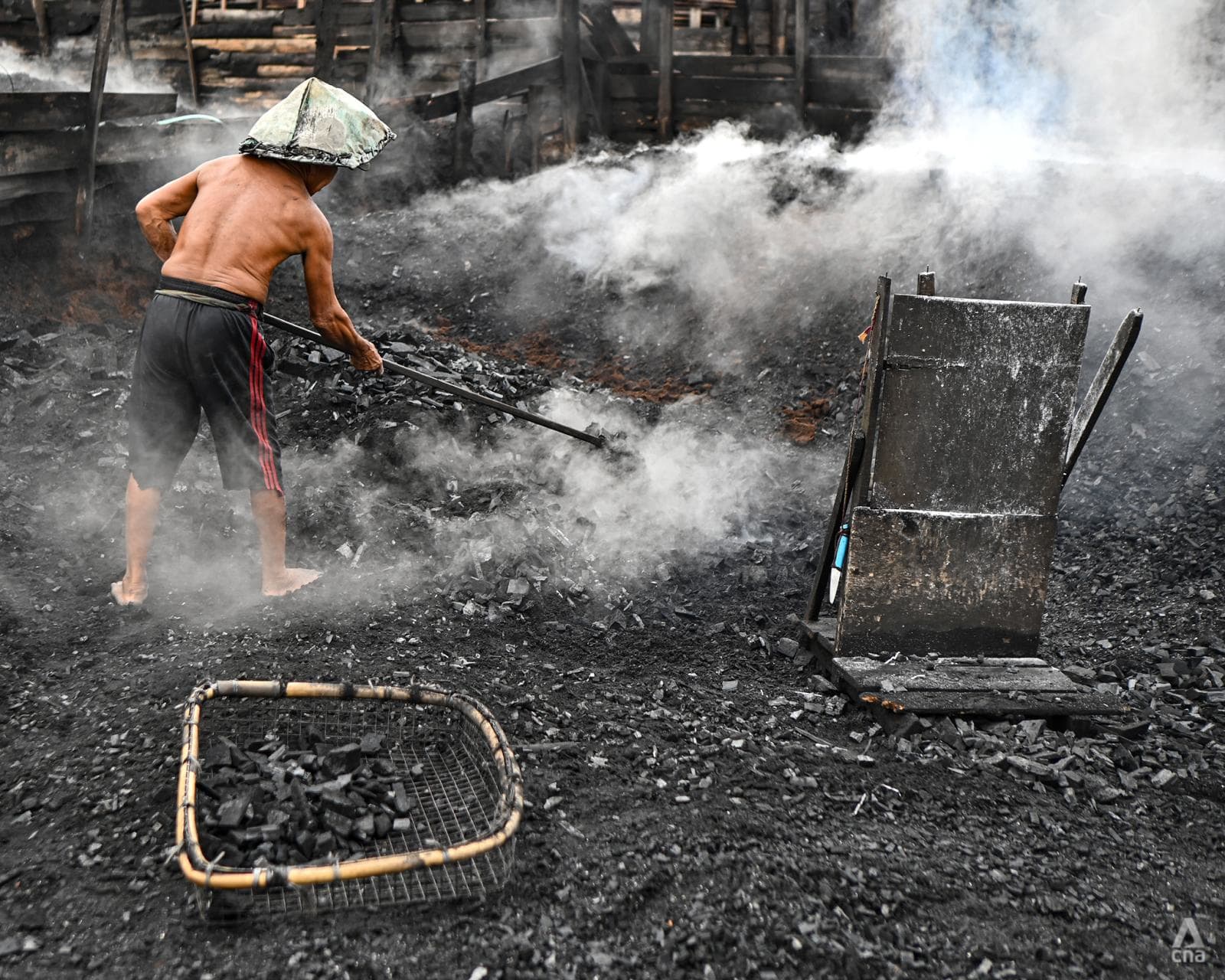
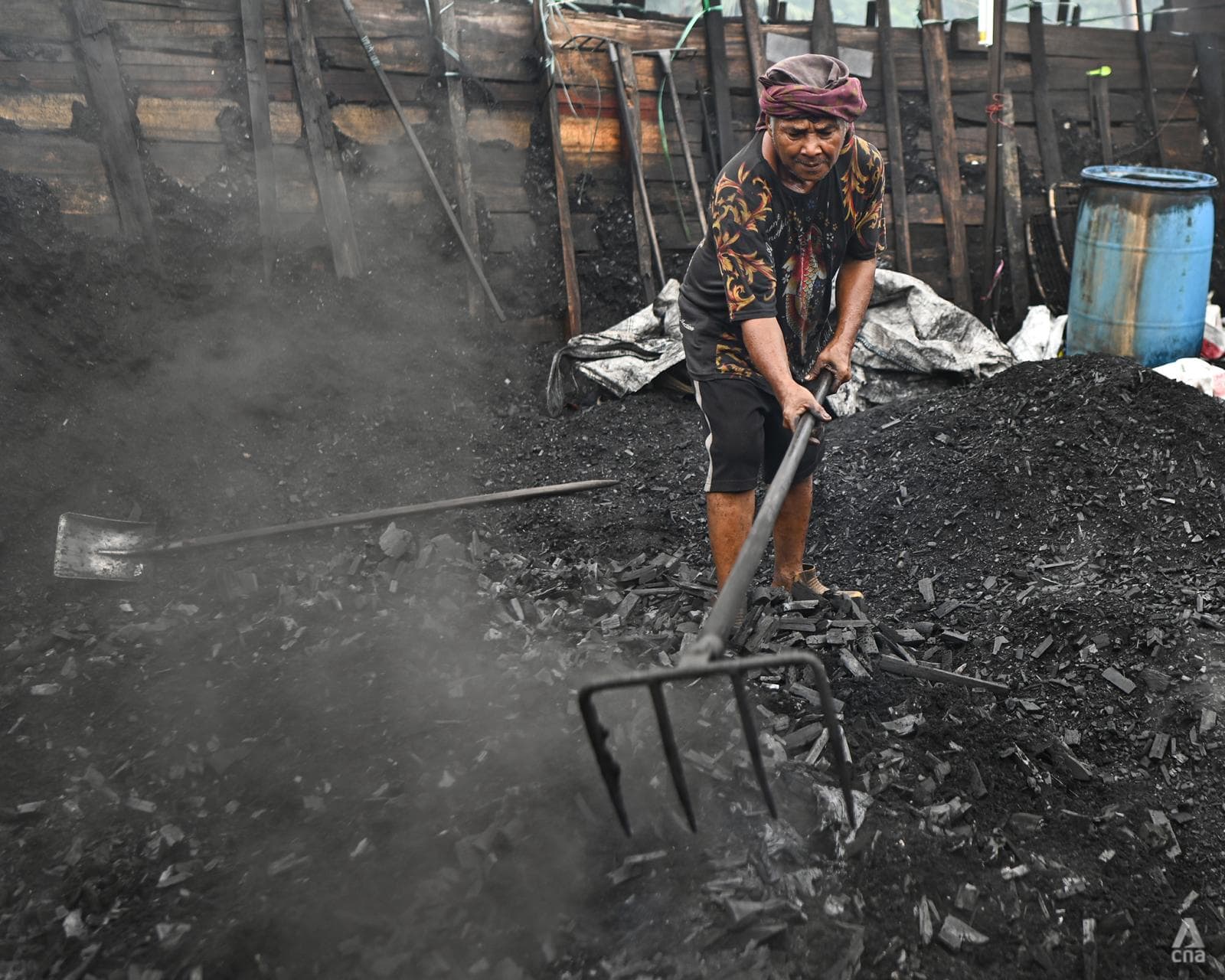
After five hours of labour, the workers managed to catch a short break for lunch over a meal of nasi lemak (rice cooked in coconut milk), Malay kueh and coffee they bought from a shop nearby.
They did not rest for long, a mere half hour, before returning to their tasks.
As the charcoal cooled, Mr Mustapa began to sift and sort through the wood, releasing more dust into the air, which is another health hazard the workers have to endure.
"Alhamdulillah (Thank God), none of us have ever gotten sick, even though we work in a place full of smoke, heat and dust," he said.
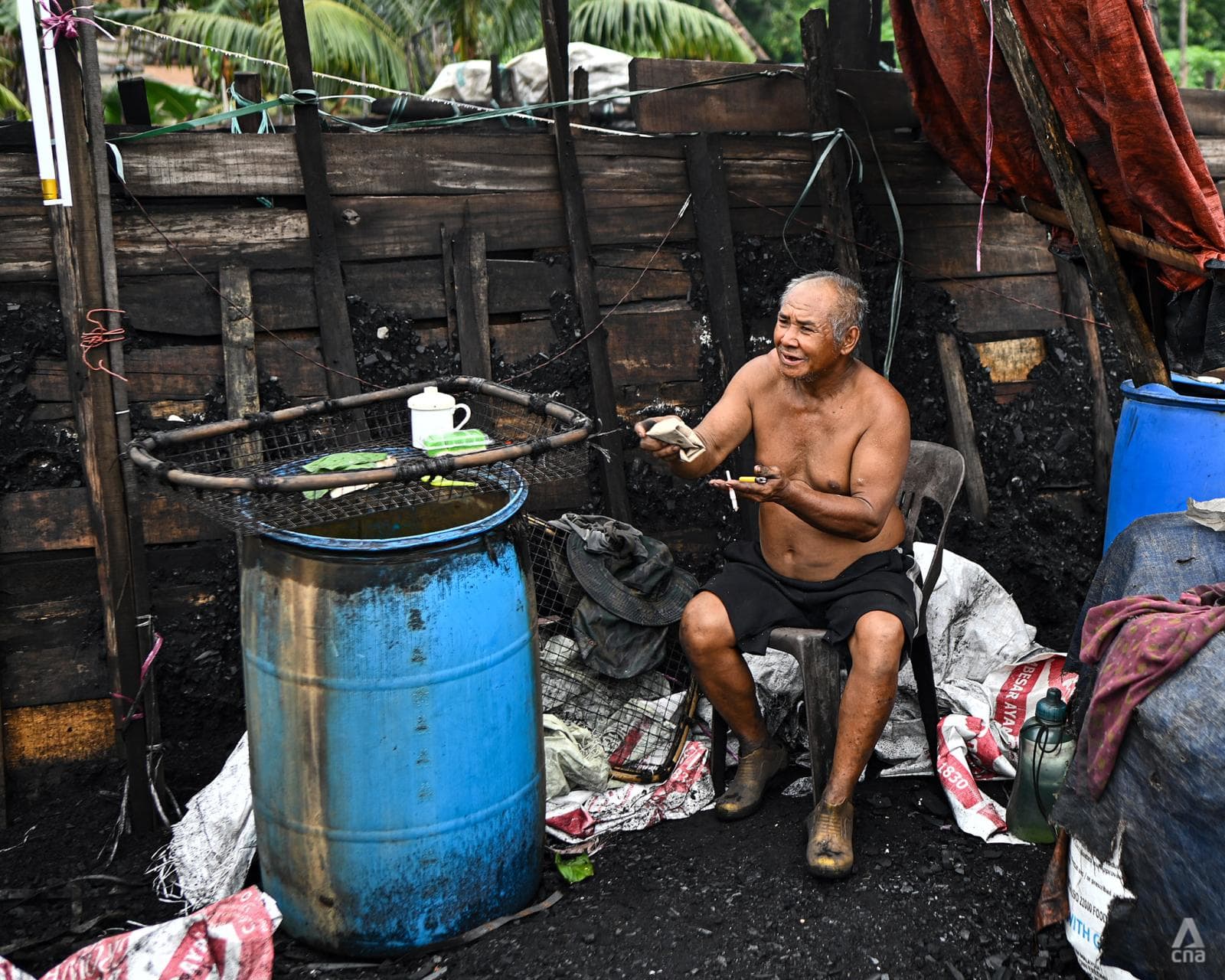
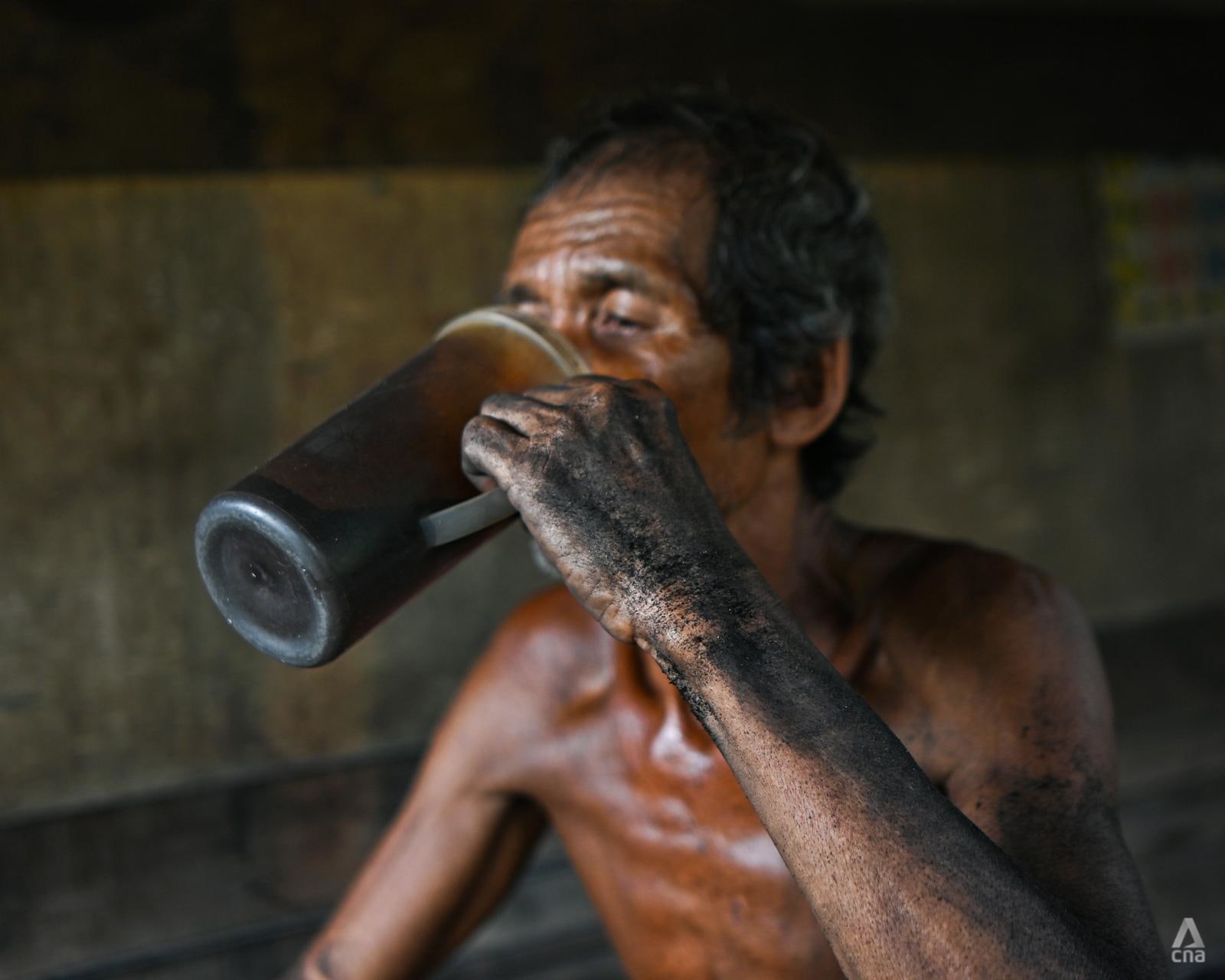
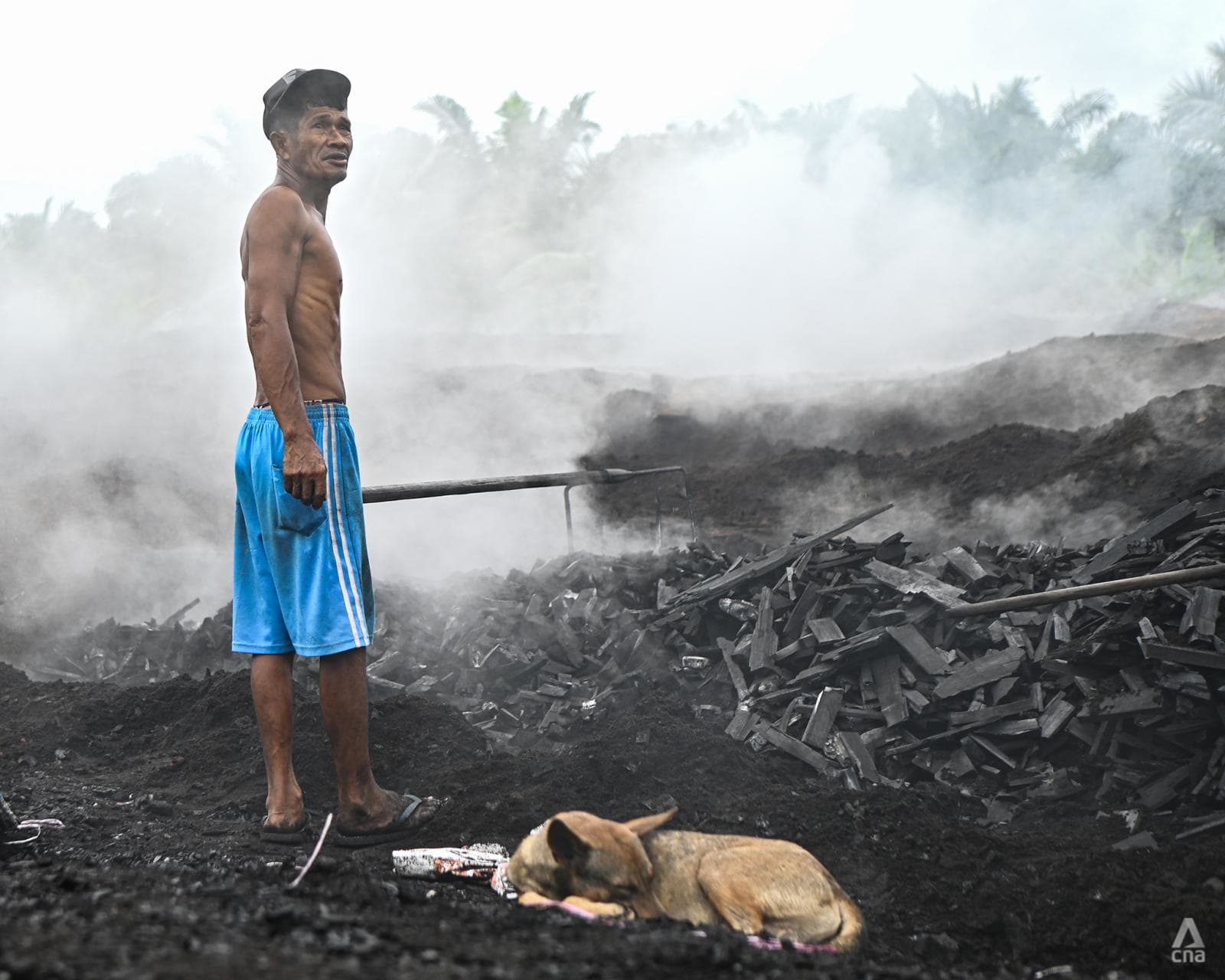
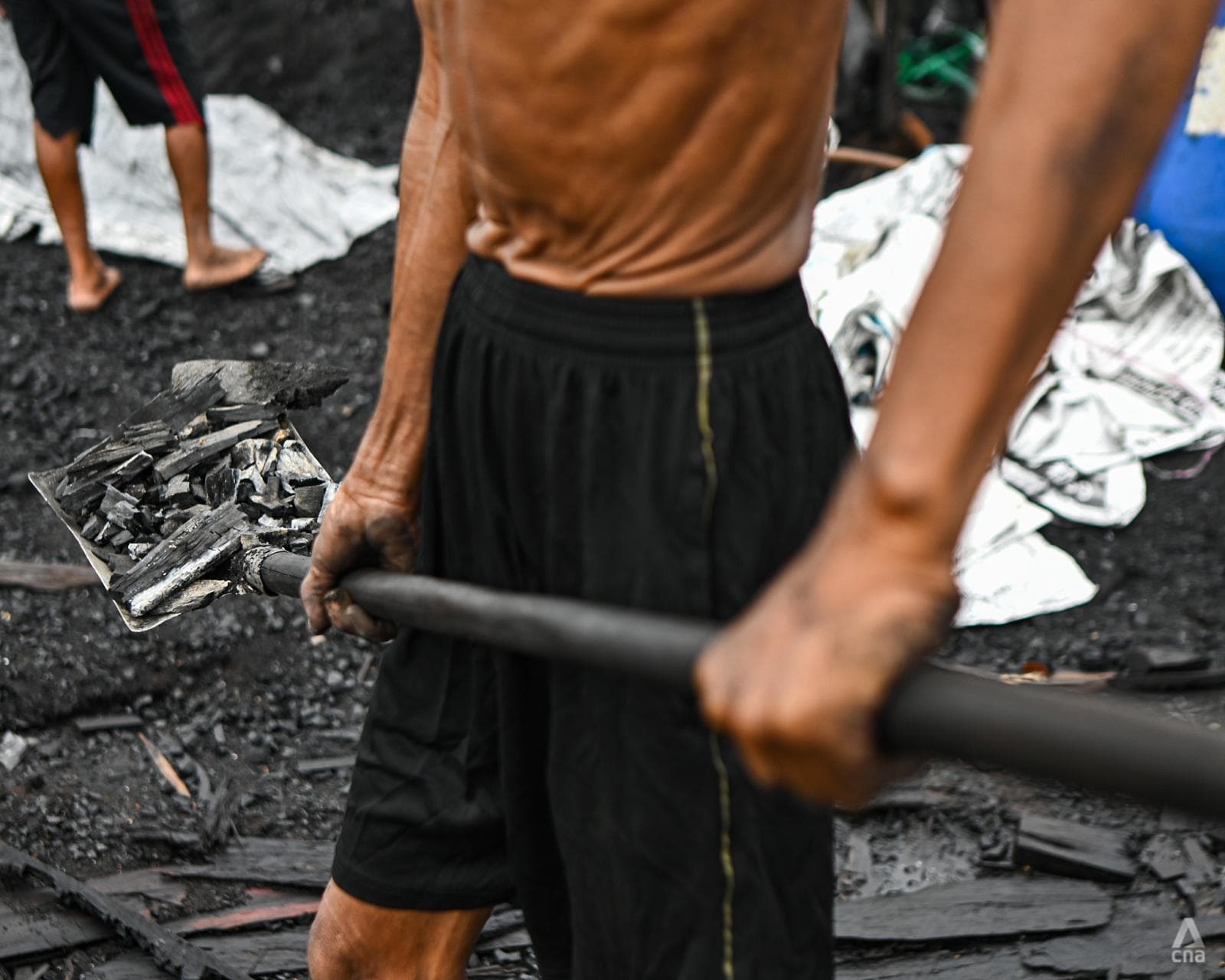
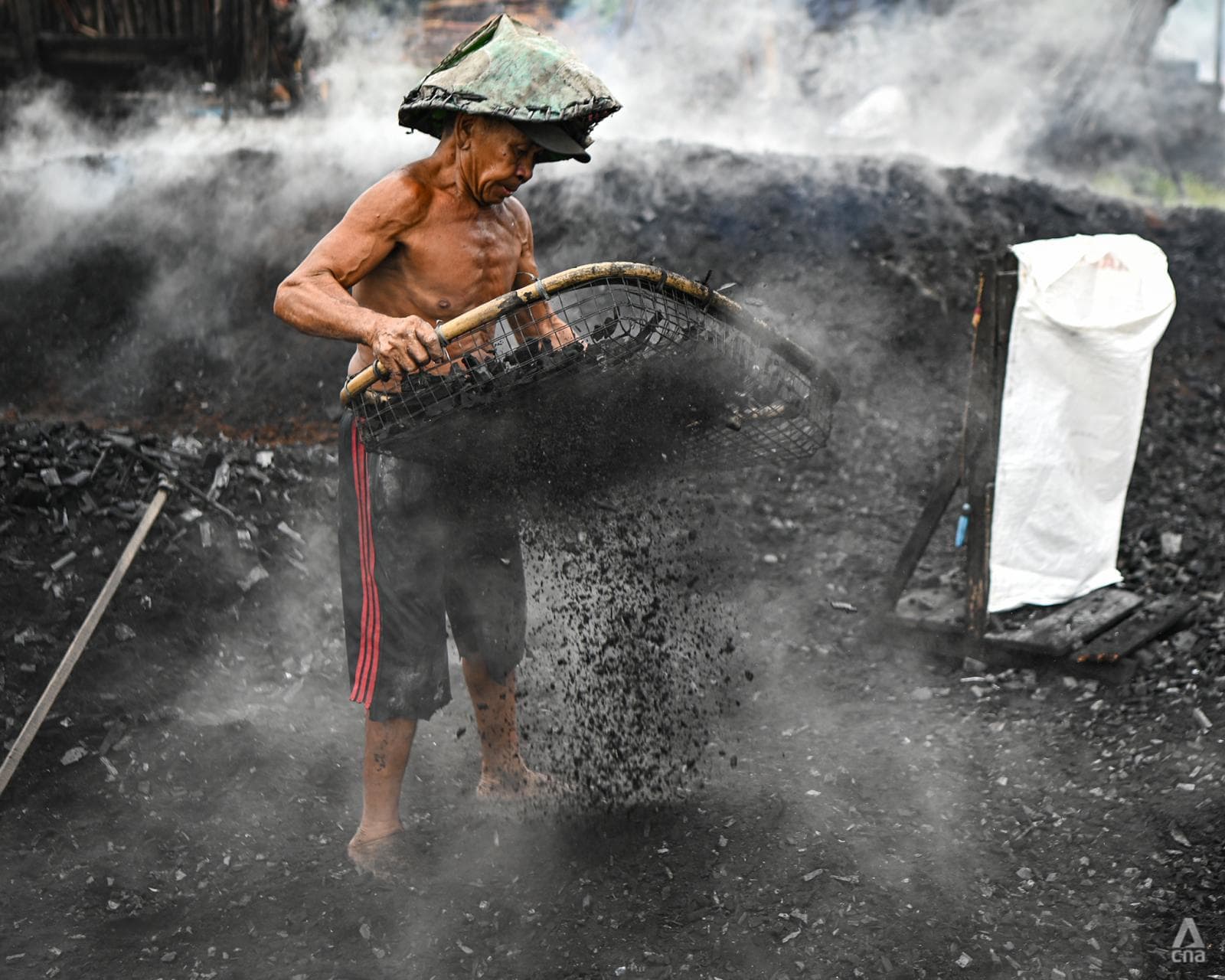
ENDURING HARSH ELEMENTS
It is not just the heat and smoke from the fire that make the working conditions harsh. The weather, too, often compounds the situation.
Several of the workers wear hats to shield themselves from the blazing sun. They would also splash water over their bodies to help them cool down.
When it rains, as it frequently does in Malaysia, the work does not let up as they are still required to ensure that the flames keep burning.
"If it rains, the smoke gets even thicker and (makes it) harder to breathe," Mr Mustapa said.
The rain also turns the ground into muddy sludge, making every step more arduous.
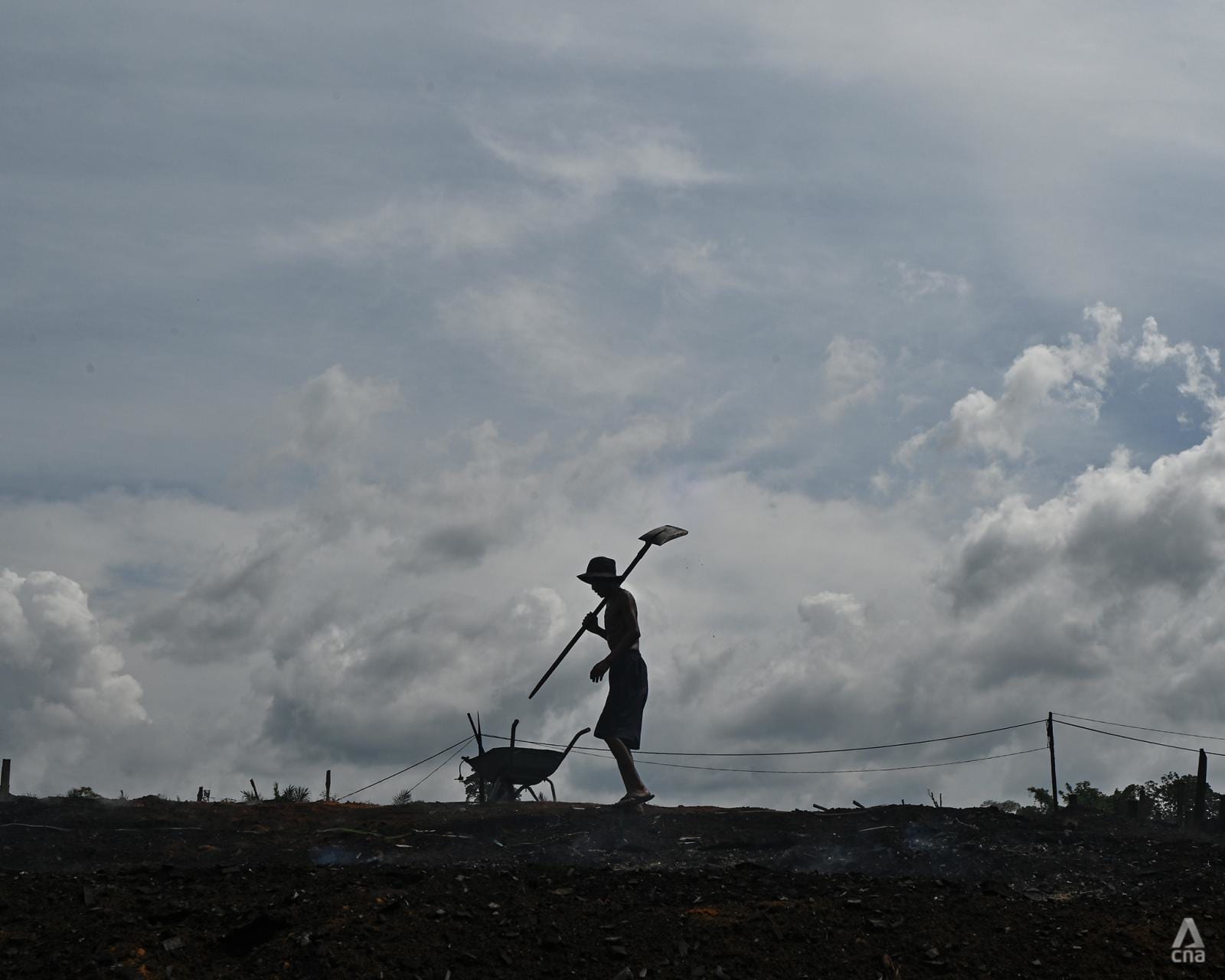
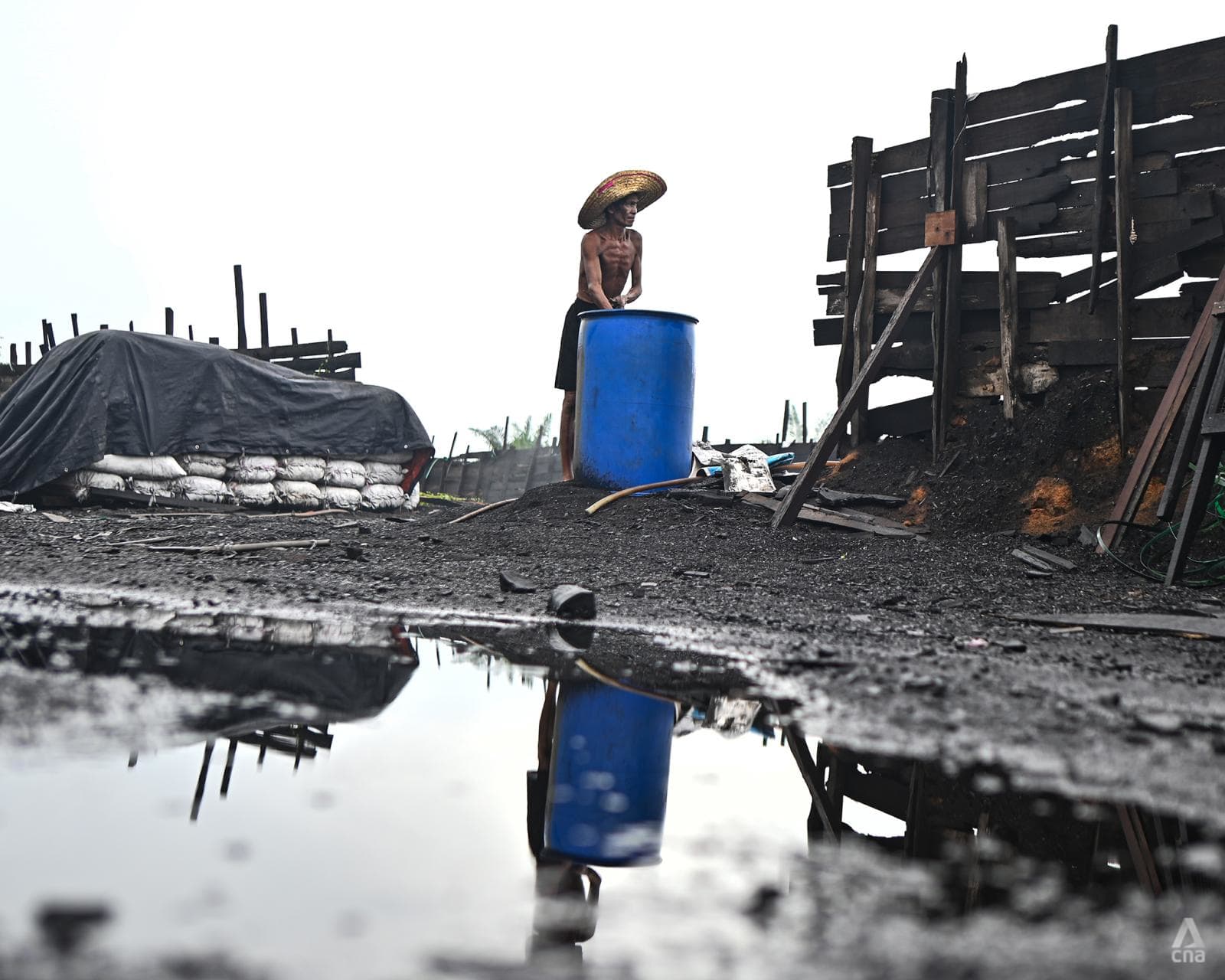
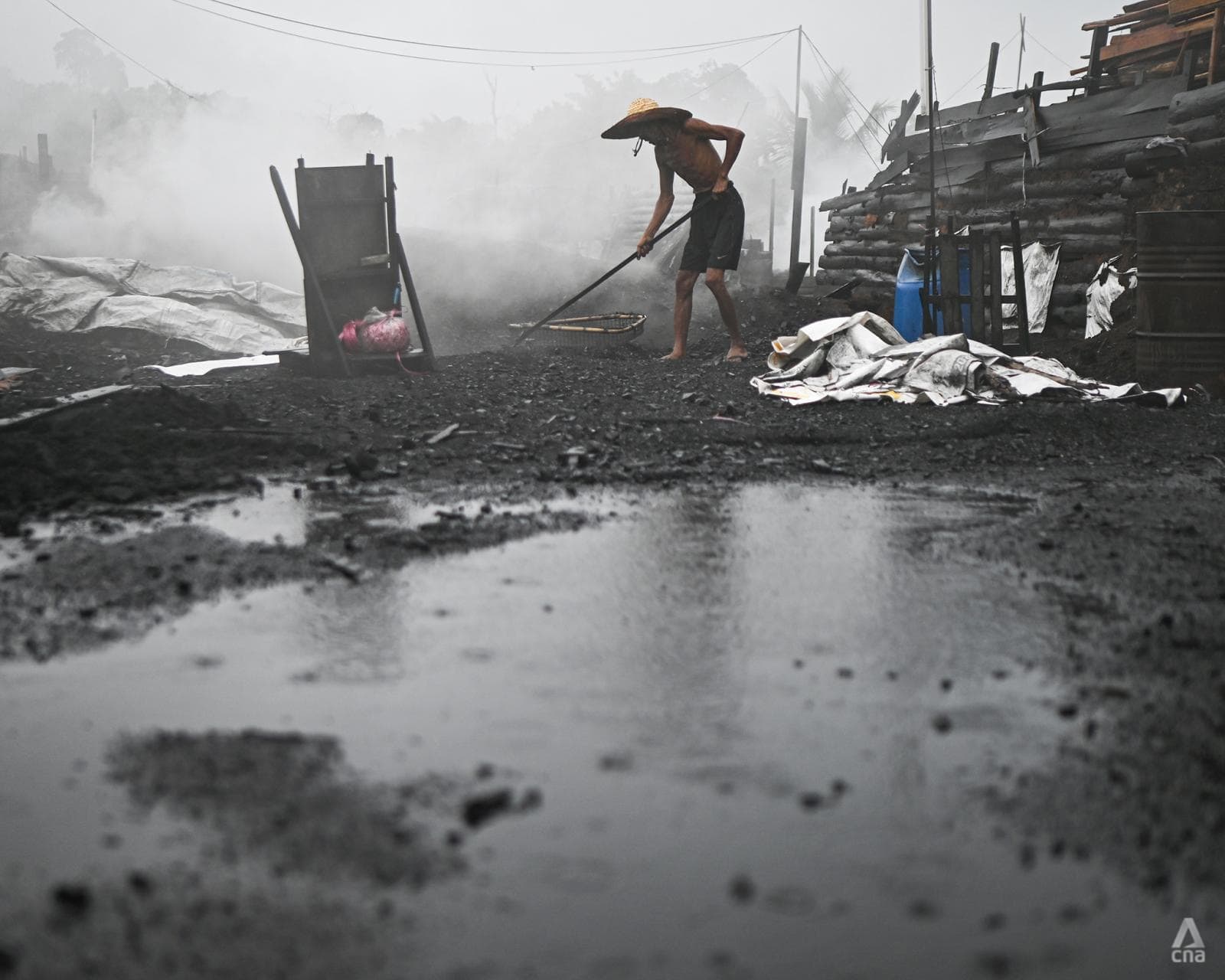
The charcoal is sorted into sacks and the workers aim to fill between 10 and 15 sacks every day, each sack weighing around 20kg.
Each bag of charcoal sells for around RM25 (US$5.80).
The workers are mostly done by early evening, although there are some days when they work into the night.
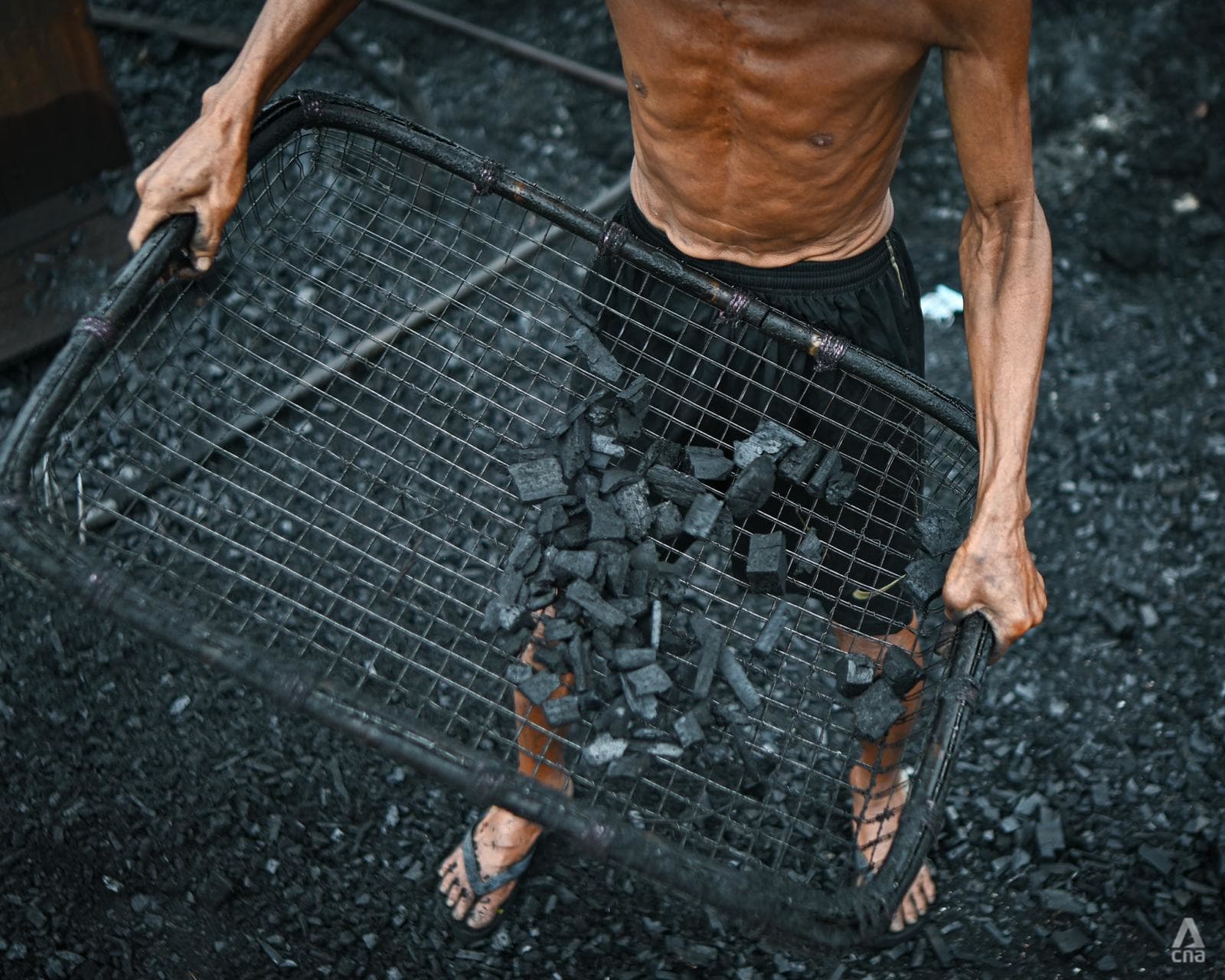
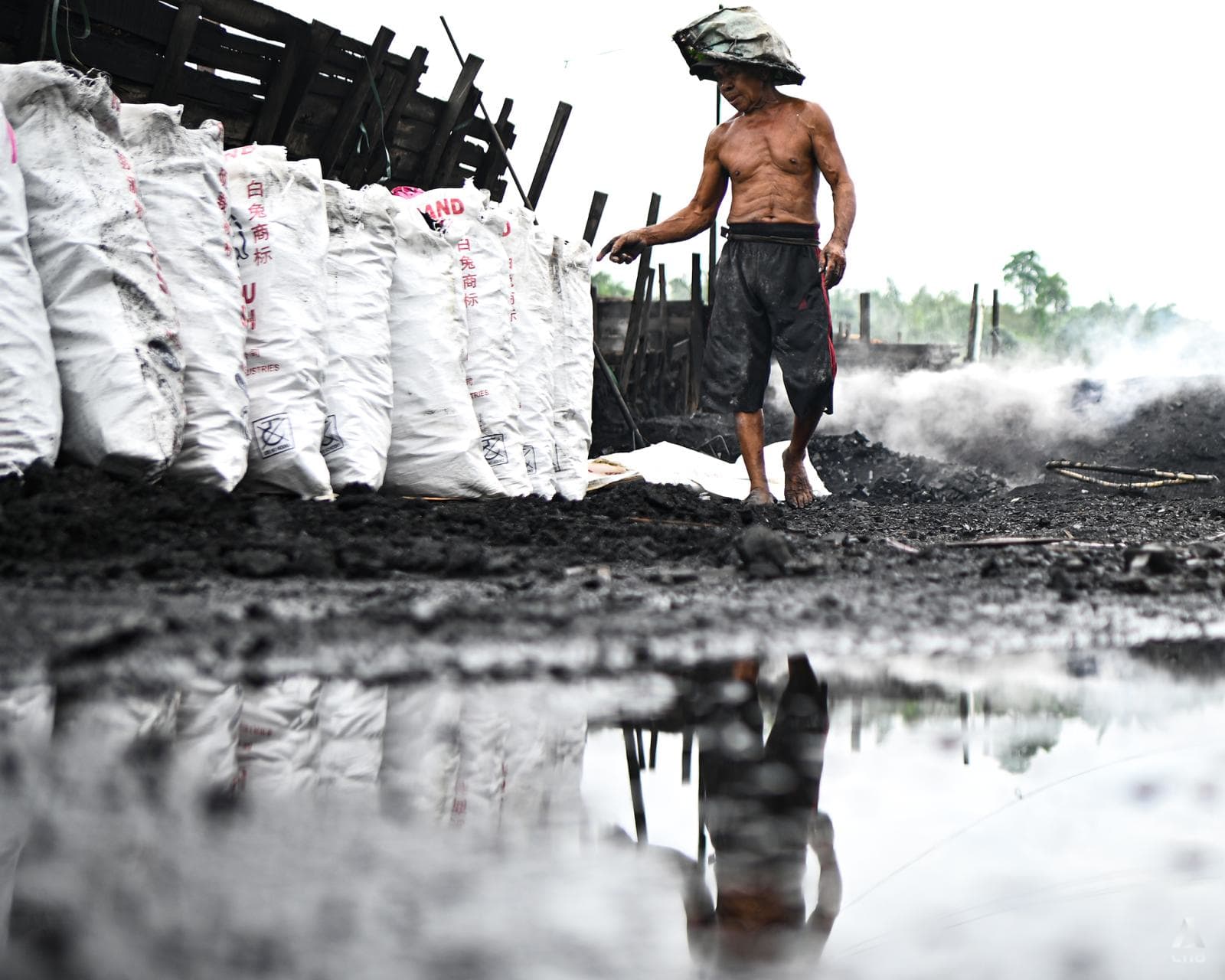
FUELLING THE ECONOMY
As of April 2025, Malaysia exported charcoal products worth RM98.4 million, making the country the 17th largest exporter of charcoal globally.
The product is typically used for traditional cooking at home or by street food vendors in Malaysia.
It also has various industrial purposes, including being used in cosmetics, water filtration and odour control.
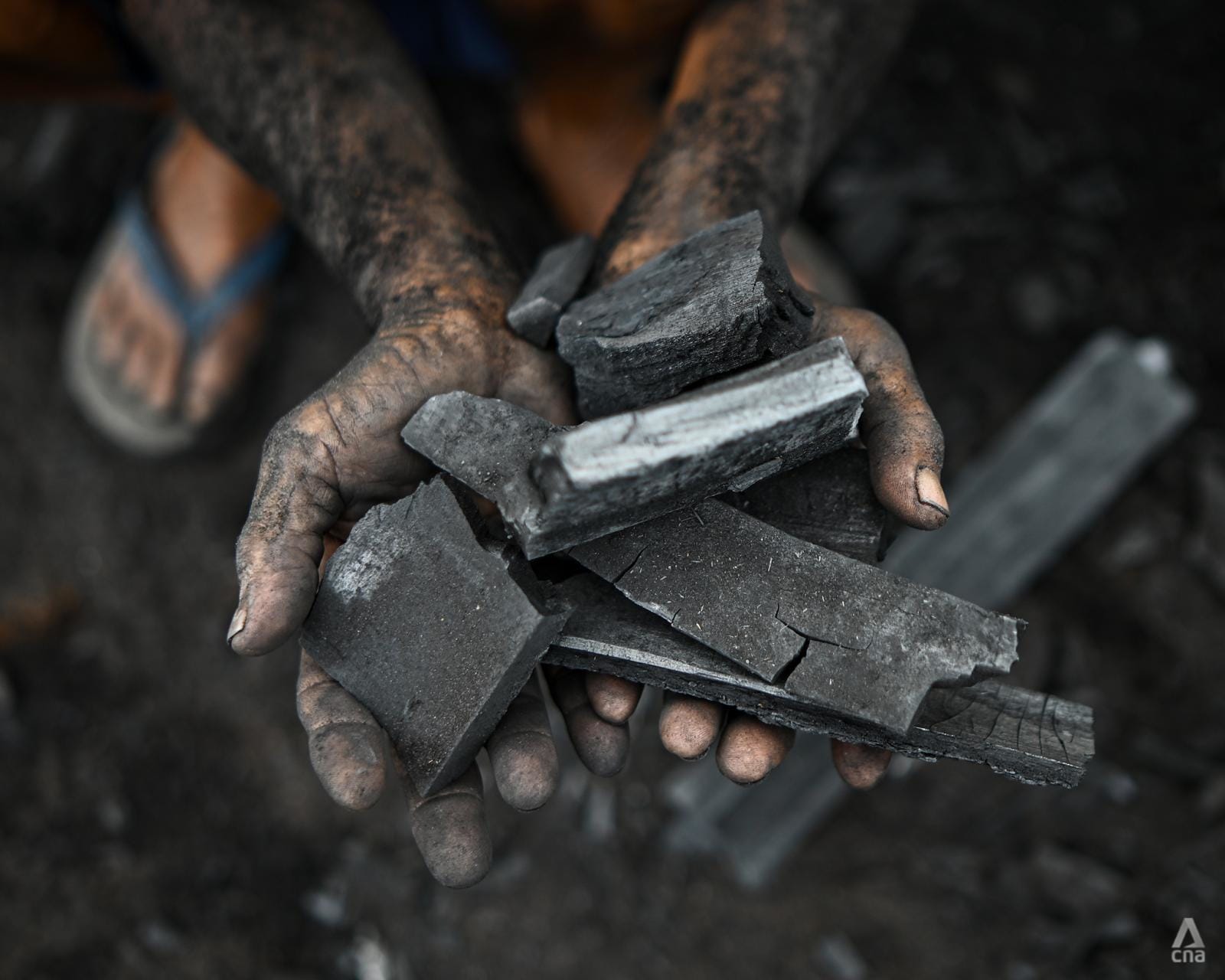
Workers in this sector are mostly foreigners and they typically earn between RM2,000 and RM3,000 a month, Mr Mustapa said.
As of 2024, there were 2.3 million foreign workers in Malaysia, statistics from its Ministry of Human Resources showed.
Most of these workers were from Bangladesh (38 per cent), followed by Indonesia (25 per cent) and Nepal (16 per cent).
They were primarily employed in the "3D" sectors such as manufacturing, construction, agriculture and mining, where there are a lack of Malaysian workers.
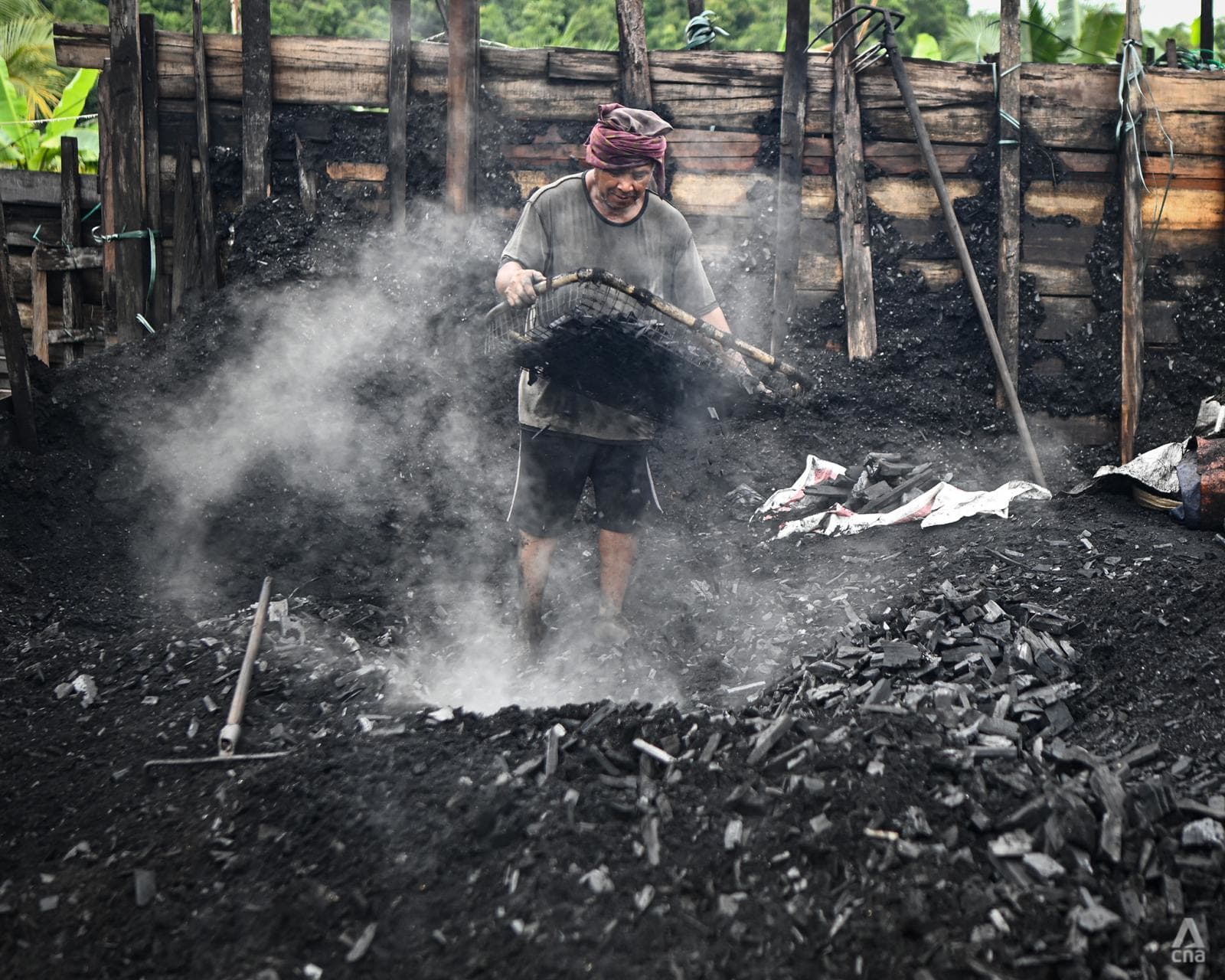
LABOURING FOR A BETTER FUTURE
Workers such as Mr Sahiruddin Rahman continue to endure the harsh conditions of the job, driven by the desire to give his family a better life.
The 55-year-old father-of-four, who was once a farmer, would like to see his children get a good education.
"I want to see my children succeed. I want them to have good jobs," he said.
He also dreams of becoming a livestock farmer once he retires.
"I want to raise cows and goats, but I don’t have enough money yet, so I have to keep working."
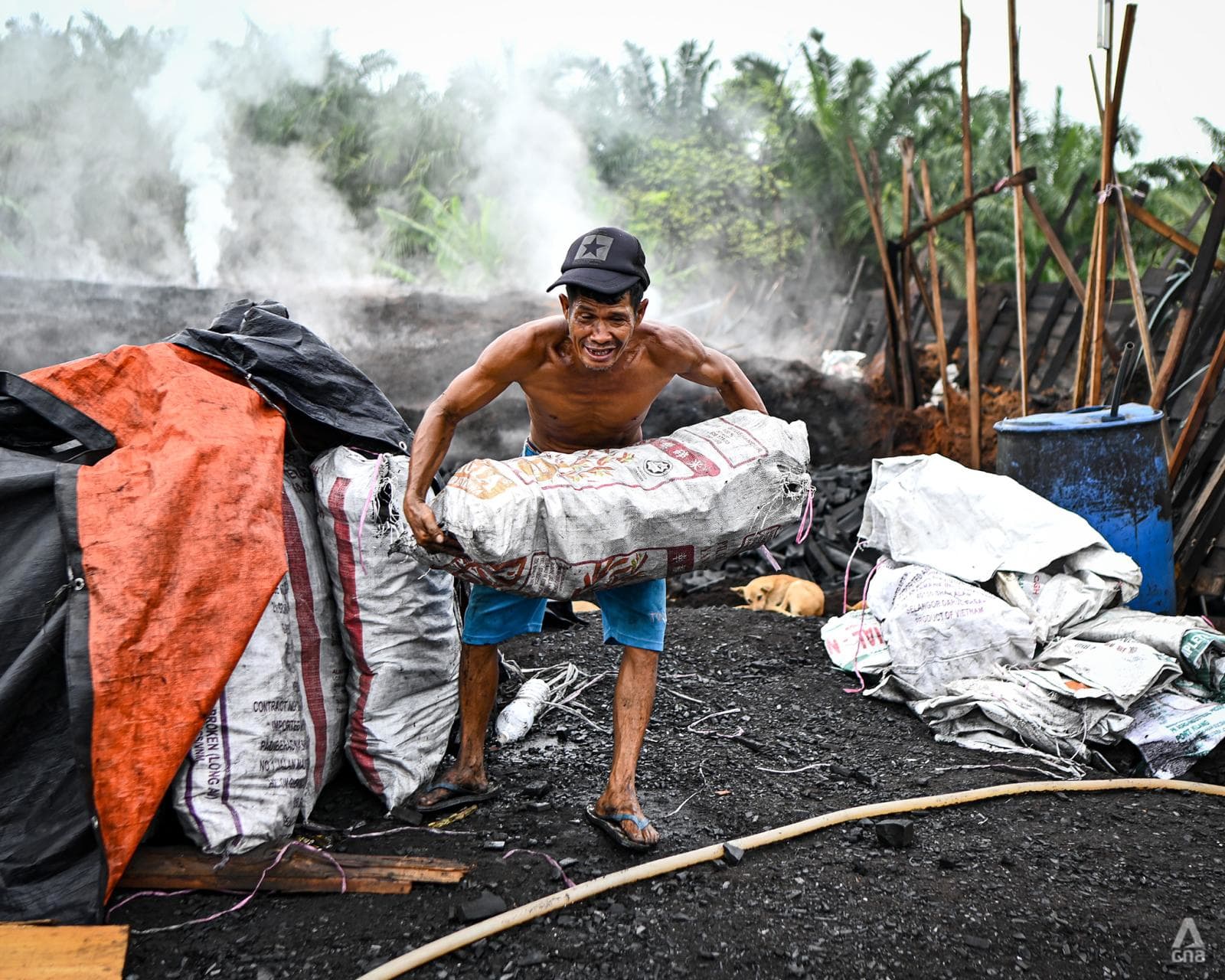
Another worker, Mr Sahitom Ahmad, 53, dreams of one day returning to his village to build a house for his family.
"I want to buy land so my family and I can live more comfortably and I can watch my grandchildren play in the yard."
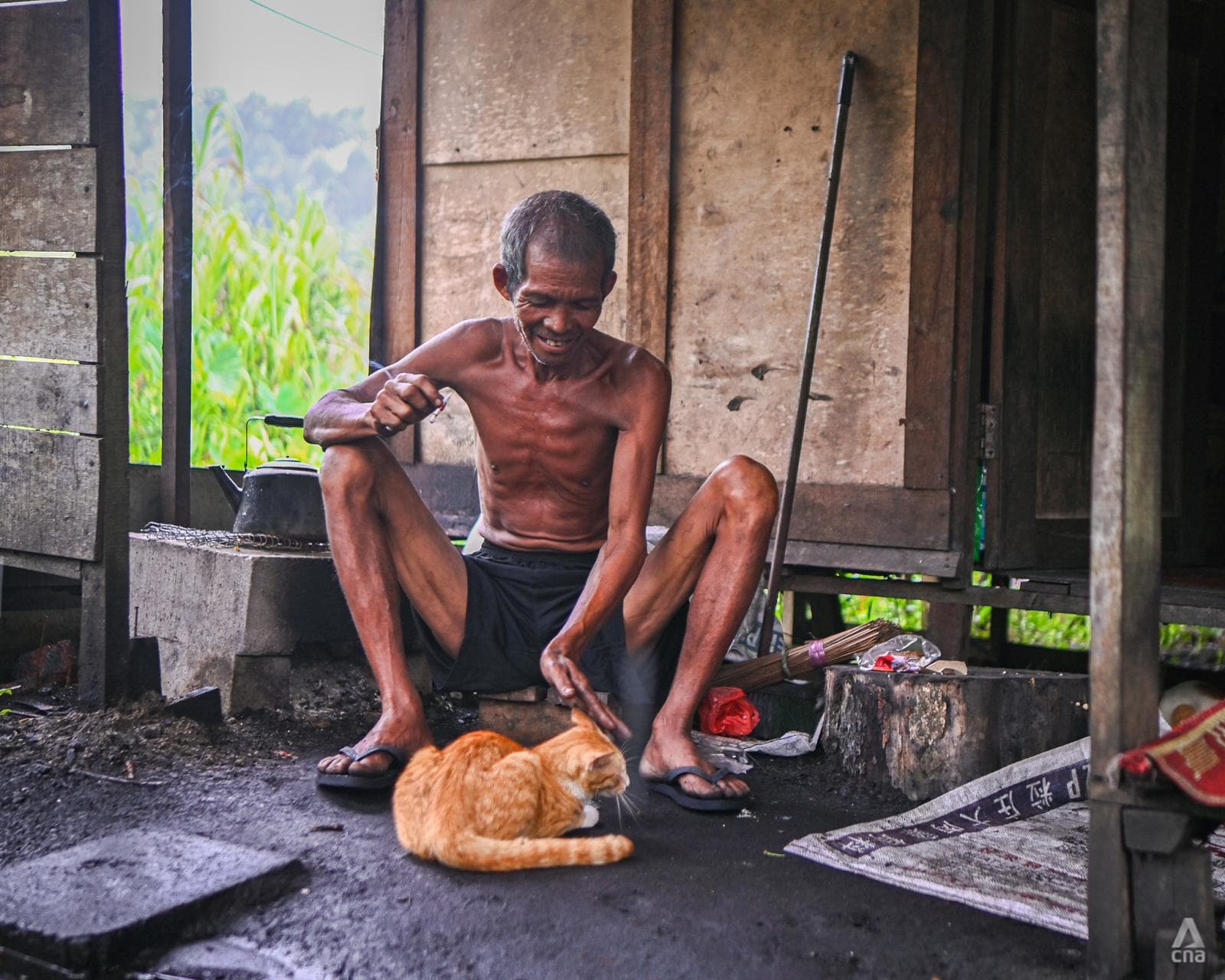
For Mr Mustapa, this will be his last year working at the charcoal factory. He plans to return to Lombok for good and is hoping to spend more time with his family and his six grandchildren.
"I just want to play with my grandchildren and watch them grow."








